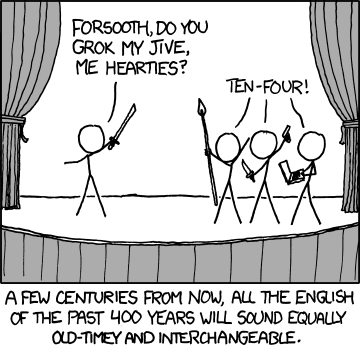droomph
weeb
- 4,285
- Posts
- 12
- Years
- Age 27
- nowhere spectacular
- Seen Feb 2, 2017
Yá, n onu 200 ósum Ée, d Énlislegets qna deren v. I qna v uré deren. Aníde, wa i qna sun lí, wa Werze qna sten fu, bä i qna soun smte lí ses ó alés. Yá, Énlis qna sun smte lí u freite Jame'en, adéne. Bä ti v nlu u Hípass. Wa ér Hípassze v?
Yes, I literally spent about a day thinking of that. If you can decode it, please do tell! Also the last question is really important to me (what do you think English, or any language in general, will be in 200 years)? I've already done this for Japanese and German. I thought it would be more relevant to share the English one with you guys :p
It means a lot to me to know what things are gonna be in the future, even though I know it won't affect me at all. Why would I want to know how my great-great-grandchildren (that is, if I have any) will talk? I'll be dead.
But it's something I do to keep my mind off of boring stuff like that last sentence in the previous paragraph.
:)
Yes, I literally spent about a day thinking of that. If you can decode it, please do tell! Also the last question is really important to me (what do you think English, or any language in general, will be in 200 years)? I've already done this for Japanese and German. I thought it would be more relevant to share the English one with you guys :p
It means a lot to me to know what things are gonna be in the future, even though I know it won't affect me at all. Why would I want to know how my great-great-grandchildren (that is, if I have any) will talk? I'll be dead.
But it's something I do to keep my mind off of boring stuff like that last sentence in the previous paragraph.
:)

